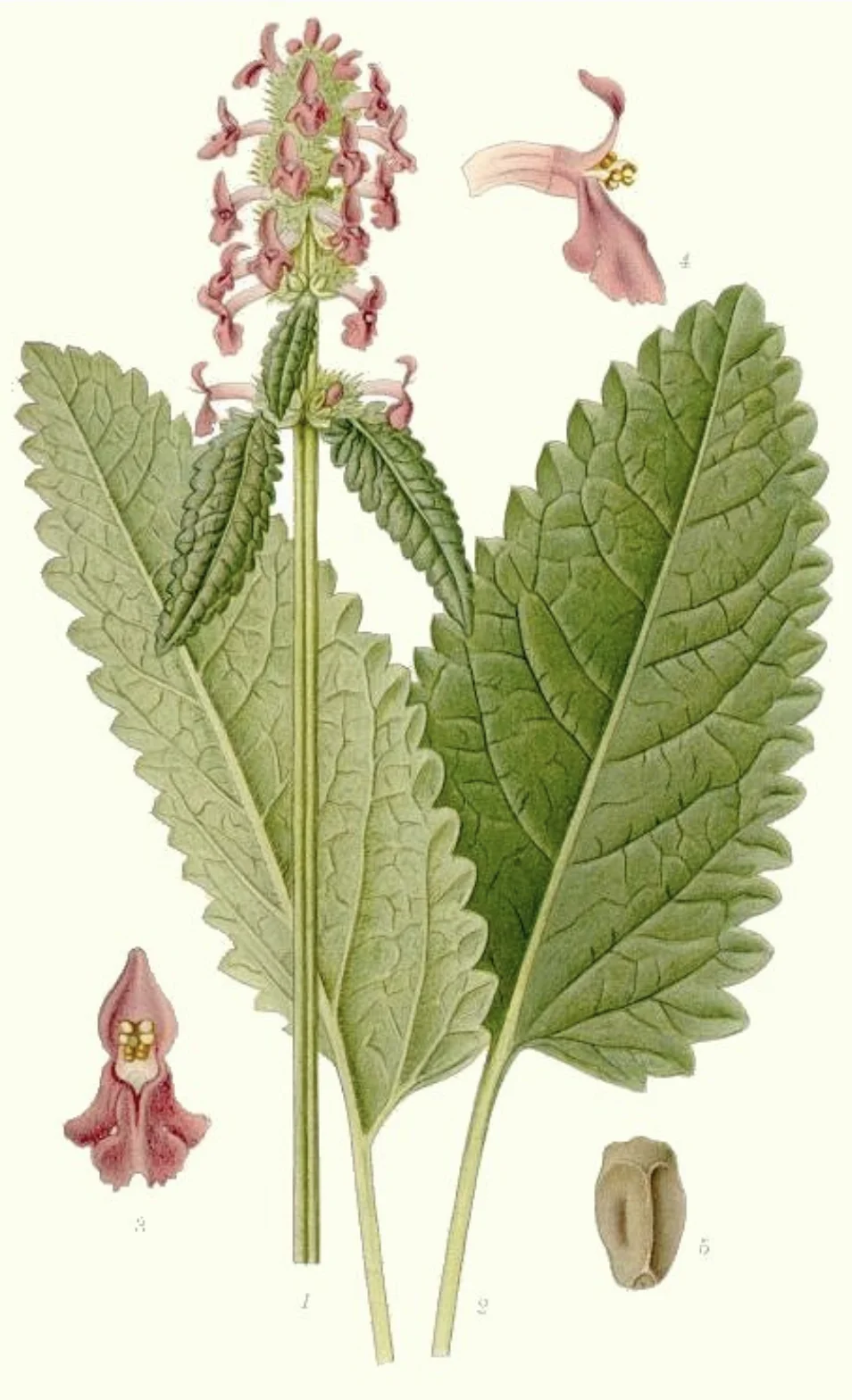Betony
Betony
BETONY SEEDS
Stachys officinalis/Betonica officinalis
If you spent a lot of time reading old herbals and pharmacological literature you'd be forgiven for thinking that Betony might be a panacea for everything that ails you. It is one of the first and most consistently documented medicinals in known literature. For reasons that contemporary science can't explain, Stachys officinalis was heralded as a cure-all throughout the ancient world and as recently as the Colonial era. The genus of Stachys is expansive, with several hundreds of individual known species. One possible reason for the virtues of Betony being uncorroborated by contemporary science is that what we call Stachys officinalis is a different species than the one employed historically as Betony.
Regardless of potential historical hyperbole or species confusion, Stachys officinalis makes an excellent substitute for black tea (Camellia sinensis). Both its leaves and flowers may be dried and used to make a superior herbal tea. Stachys officinalis contains tannins similar to those in black tea, the highest concentrations of which occur in the leaves harvested before flowering in the second and subsequent years of growth. Betony contains no caffeine and there are no known contraindications.
These seeds are of the wild European strain of Stachys officinalis, now called Betonica officinalis. These plants are happy to grow in almost any soil as long as they receive sun and some moisture. Once established, they are tough and will compete favorably with grass and other short-statured species. Consider planting Betony with wild strawberries (Fragaria vesca or Fragaria virginiana), whose dried leaves also make a superlative and healthy tea.
Betony flowers are edible and make a very pretty and fragrant jar of sugar for sweetening tea.
Fresh Betony leaves make a unique chartreuse dye.
Seeds are best sown outdoors in midwinter or very early spring. Seed may require some cold to germinate. To start indoors: sow seeds on the surface of moist soil, barely covering with fine vermiculite; mist generously; kept moist in bright light at cool room temperature (50-60F) seeds may germinate in a week or two. If no germination occurs, wrap the pot with plastic and pop it in the refrigerator for a few weeks before returning to room temperature. Transplant seedlings when they are large enough to handle to individual containers or cells. Transplant outdoors after the last frost.
Packet contains around 100 seeds.
